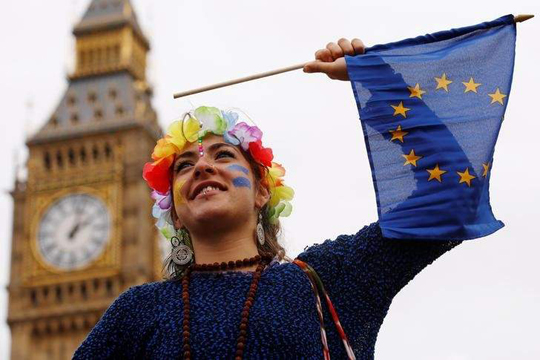London, Feb 3: The UK government on Thursday unveiled a policy document on its negotiating plans for quitting the 28-nation European Union under a mutually beneficial deal which cites India as among the key countries on its target list for stronger trade ties post-Brexit.
"We approach the negotiation to come in a spirit of good will and working to an outcome in our mutual benefit," David Davis, minister for exiting the European Union (EU), told the House of Commons, adding that Britain's "best days are yet to come".
"I will not be throwing people out of Britain," he added, in reference to a question about the rights of EU citizens based in the UK following Brexit.
Davis said the government will publish another White Paper before the Great Repeal Bill, which will formally mark Britain's intention to break from the laws governing the EU after the June 2016 referendum in favour of Brexit.
"We have started discussions on future trade ties with countries like Australia, New Zealand and India," the UK government wrote in its White Paper.
"This department will lead the UK's ambitions for deepening trade and investment relations with the wider world. Many countries including China, Brazil, and the Gulf States have already expressed their interest in enhancing their trading relationships with us," it said.
Around 3 million EU citizens are waiting to find out if they can remain in the UK, along with up to two million British citizens in other EU member states, following last June's EU referendum.
The White Paper effectively spells out in detail British Prime Minister Theresa May's 12 "principles" including migration control and "taking control of our own laws" unveiled in a major speech last month.
It confirms that the final Brexit deal will be presented before Parliament for ratification and that the UK would pursue a fresh tariff-free trade agreement with the EU after an exit from the common single market.
"After we have left the EU, we want to ensure that we can take advantage of the opportunity to negotiate our own preferential trade agreements around the world," the document said.
May's foreword to the White Paper is made up of extracts from her Lancaster House speech on January 17, in which she said that forging a new partnership with Europe and a "stronger, fairer, more global" Britain would be "the legacy of our time, the prize towards which we work, the destination at which we arrive once the negotiation is done".
The document, which provides the UK Parliament and the
country with a "clear vision" of what the government is seeking to achieve in negotiating the UK's exit from, and new partnership with, the EU, comes a day after British MPs voted in favour of May invoking Article 50 of the Lisbon to trigger the two-year timeline to negotiate a new deal as a non-member of the bloc.
MPs backed the European Union (Notification) Bill by 498 votes to 114 last night, with 47 Opposition Labour party rebels voting against.
The bill will now face more debate before it can become law.
MPs will discuss the bill in more detail next week when it reaches the committee stage in the Commons, and Labour has vowed to force through amendments.
Exit talks with the EU are expected to last up to two years, with the UK predicted to leave the 28-member organisation in 2019.







Comments
Add new comment